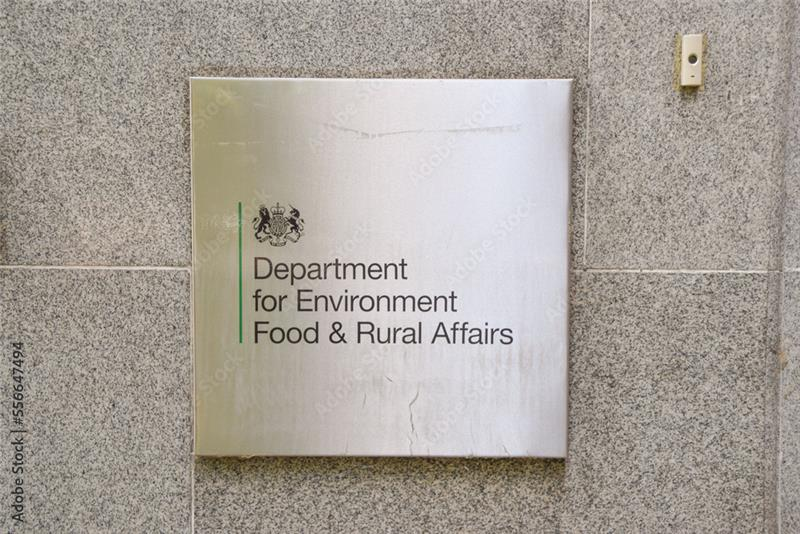
DEFRA Minister responds to the Association regarding the Border Target Operating Model
Our members and the broader industry rely heavily on a consistent supply of plants and materials sourced not only from across Europe but from around the world. For some months our members and the wider industry has been facing significant and unforeseen challenges due to the rollout of the Border Target Operating Model (BTOM).
In September, the Association addressed these issues in a letter to the Department for Environment, Food and Rural Affairs (DEFRA), highlighting concerns around:
Unforeseen Delays and Insufficient Communication Channels
We have observed widespread and prolonged delays at Border Control Points (BCPs) that are both unexpected and disruptive. This unpredictability is compounded by insufficient communication from relevant authorities, leaving members uncertain about when shipments will clear. The absence of clear, real-time updates on procedural changes or inspection timelines further complicates supply chain management, making it difficult to provide reliable timelines to clients.
Damage to Goods Due to Improper Inspection Procedures
Numerous reports indicate mishandling during inspections, especially with live plants and perishable materials that are highly sensitive to environmental conditions. Improper storage and handling—whether due to inadequate training or poor coordination—have led to goods arriving damaged and unfit for purpose. The financial losses from these damages are substantial, leaving members to absorb the costs.
Unexpected and Confusing Invoices
One of the most pressing issues is the arrival of unexpected and confusing invoices related to border checks and fees. These invoices often lack clear explanations, making it challenging for members to reconcile costs and understand the charges. This lack of transparency imposes an unnecessary administrative burden and financial strain, further complicating operations for our members.
Inability to Provide Accurate Cost and Project Estimates
One of the most pressing issues is the arrival of unexpected and confusing invoices related to border checks and fees. These invoices often lack clear explanations, making it challenging for members to reconcile costs and understand the charges. This lack of transparency imposes an unnecessary administrative burden and financial strain, further complicating operations for our members.
Baroness Hayman of Ullock, the Minister responsible for the oversight of BTOM currently, issued a response in November. The Minister said that:
"Control Points (CPs) are designed to handle high volumes of imported SPS goods and offer extended opening hours with staff working shifts on site to carry out reliable checks which minimise friction on traffic flow. Most Border Control Posts (BCPs) can process six or more vehicles at the same time with ample space to remove or inspect products"
"Checks at BCPs are handled by trained staff working to standard operating procedures, ensuring inspections are undertaken safely and efficiently. The Animal and Plant Health Agency (APHA) plant health import inspection process is accredited to the ISO 17020 Inspection Standard which is subject to external audits from the UK Accreditation Service. Inspectors are rigorously trained and are equipped to ensure SPS goods are handled safely and with care"
"GB plant health services have significantly increased the number of plant health inspection staff to service the demand for import checks in England and Wales of EU plants and plant products. Inspector levels are being monitored to ensure these meet demand and deliver checks in line with set Service Level Agreements and ensure minimal trade disruption"
"It is worth noting that it is up to individual commercial ports to determine their own charging structure and rates. This will allow ports to ensure costs cover their expenses whilst remaining viable for both industry and businesses. As commercially owned ports set their own charges, they should be contacted for clarity on charging structure"
"The introduction of robust controls on EU imports means new costs to fund the operation of government-run BCP facilities at Sevington serving the Port of Dover and Eurotunnel. The controls are vital to ensure physical inspections on SPS imports can be undertaken safely and securely. Please review the table below for a breakdown of costs for using a government-run BCP"
"In the meantime, Defra will continue to monitor and review the impact of the physical border controls introduced under the previous government in April. We will work closely with industry, trade partners and enforcement agencies to minimise disruption and costs to trade, while continuing to protect our biosecurity"
Remarks from the Association
While the Association appreciates the Minister’s response, we believe more can be done to better align government policy with the realities our members face at the industry level. To bridge this gap, the Association will be compiling a detailed report that documents the issues raised on behalf of our members.
This report will provide an in-depth look at these challenges, supplemented by images, testimonies, and case studies. We invite members who wish to share their experiences and evidence to contact us at technical@bali.org.uk
The report will be submitted to the Minister in response to their letter, with the aim of fostering greater dialogue and collaboration to improve how the Border Target Operating Model serves our members and the wider industry.
